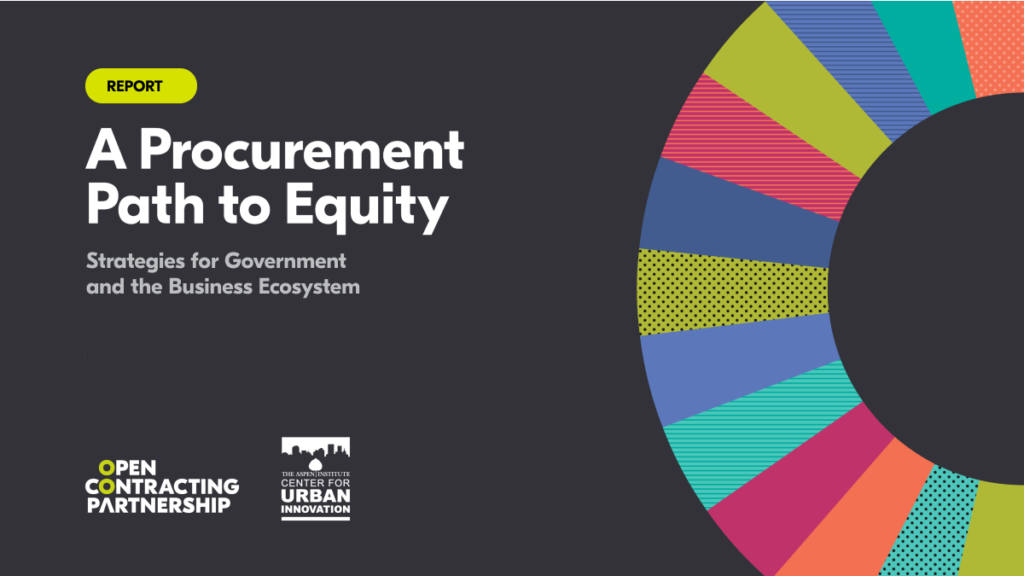New report: A procurement path to equity

Local governments are big buyers. Here in the U.S., our state and city governments collectively spend 1.6 trillion dollars per year. But for too long, how and with whom our local governments spend their money has reinforced economic inequities in our country.
We’ve asked the members of our community who have already started the hard work to reshape our procurement system to build a more fair future. We at the Open Contracting Partnership and Aspen Institute Center for Urban Innovation are excited to lift up their ideas in our new report, “A Procurement Path to Equity: Strategies for Government and the Business Ecosystem.”
We were struck by just how many of the solutions go beyond the procurement teams.
“Procurement reform, seriously, should be a whole of government enterprise.”
Rudi Borrmann, Open Government Partnership Local
The solutions in this report reflect this idea.
We also heard many ideas on how philanthropy and the businesses ecosystem can help out. For example, Sabine Romero of the City of Austin pointed out that, “ecosystem organizations – such as established business associations – can often provide a data-informed, historical perspective when local governments are discussing process equity. A small-to-medium-sized enterprise often cannot marshal such a response.”
Here are just five of the many game-changing solutions that our community shared with us:
- Set city goals in terms of the number of contracts awarded to MWBEs/SMEs for equitable procurement, and be accountable to them. Publicly sharing goals around inclusive procurement and working towards those goals can galvanize city staff, draw public attention to the issue and ambition, and encourage public accountability.
- Build SME/MWBE capacity to bid, win, and deliver contracts, including access to financial services. Increasing SME/MWBE’s capacity to successfully navigate the procurement process can help bolster participation, while access to financial services could enable them to access credit and increase their bonding capacity, thereby expanding their ability to qualify for opportunities.
- Design and iterate user-friendly systems grounded in user research and a deep understanding of the barriers for SMEs/MWBEs. Designing more navigable systems requires understanding users’ current barriers and needs.
- Help SMEs/MWBEs qualify for more bids through more flexible experience requirements and breaking up big procurements. This can expand the number of opportunities that SMEs/MWBEs are eligible for.
- Pay on time. Prompt payment helps SMEs/MWBEs stay afloat – and makes future government bidding opportunities more appealing.
Are you looking for ideas on how you can support more equitable government spending? Check out more game-changing solutions below and download our full report.
